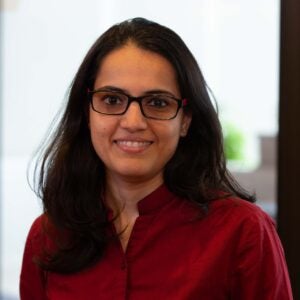Anshu Shroff, MS, is a Doctor of Public Health (DrPH) candidate at the Harvard T.H. Chan School of Public Health.
FXB: What do you see as the biggest overall challenges in Child Protection these days?
Anshu Shroff: The field of Child Protection is inherently complex and interconnected with many sectors. In my opinion, the most significant challenge is to get people who are involved in other socio-political and development issues outside of child protection to understand the interdependence of their work with child protection. Overcoming this hurdle and getting cross-sectoral stakeholders to pay attention to and work with those focusing on child protection will be a massive step in the positive direction.
FXB: How do you think academic and scholarly work can inform child protection approaches? Have you seen any good examples of this in the real world?
Anshu Shroff: Academicians have and can play a vital role in informing child protection approaches. Scientific evidence-based research can inform us about what works, why, and in what context. Furthermore, it is paramount that researchers go into a community with a curiosity to learn, understand, and then share their findings, rather than land, preach and leave.
FXB: If you work in a specific region, are there region-specific challenges you see? How do you hope to see these addressed?
Anshu Shroff: Communities have specific norms with which they may have lived through generations. Sometimes these practices could have been incorporated as responses to hardships, insecurities, or discrimination faced over many generations. In some other instances, despite understanding the shortcomings, it is challenging for an individual to break away from a social norm for fear of rebuke from the community. Therefore, it is not enough to identify issues and develop policies that abrogate some practices as detrimental. The success of any implementation effort needs the buy-in and ownership of the community. It requires that we work with them to collectively identify why some practices can be harmful or beneficial for their children and how we can work in the best interest of the child.

